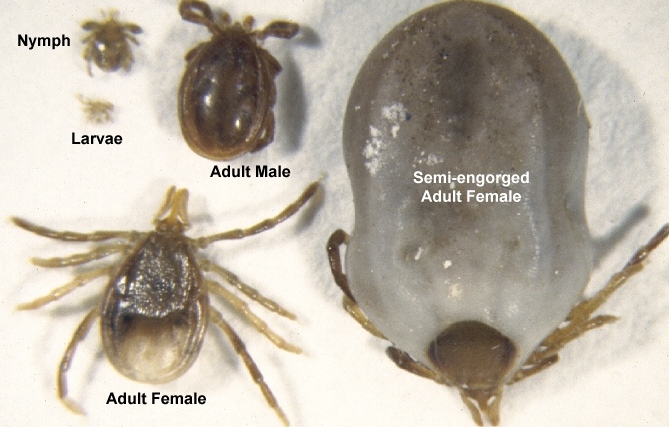Ask the Vet
TICKS – a very real threat to the health of your pet and the well-being of your family
Question: I have heard some worrying stories from friends about how dangerous tick-borne diseases can be, here in the UK. Please can you give me some information on the risks and prevention.
Answer:Ticks are second only to mosquitoes throughout the world in transmitting infectious disease to humans and animals. In the UK, most of these diseases are uncommon in cats and dogs, but due to their serious potentially life-threatening nature, they are very important when they occur. If your pet is bitten by a tick, the results can be fatal, so if you have been in areas where ticks are a problem and your pet becomes ill, do not forget to mention to your vet that your pet has recently been exposed to ticks.

Warning Signs
Tick-borne disease is an emerging illness that is often misdiagnosed due to the variety of symptoms, all of which can mimic other conditions. Whilst these symptoms are non-specific and can occur in a variety of illnesses, if your cat or dog displays any of the following warning signs, he/she may have been bitten by a tick:
- Fever
- Lameness
- Loss of appetite
- Sudden onset of pain in their legs or body
- Arthritis or swelling in your pet's joints
- Lethargy or depression
- Cough
Contact your veterinary surgeon immediately to book an appointment.
Tick related problems
Tick related problems result from physical attachment of the tick to the skin and the diseases they can transmit to your pet and can be split into:
Direct effects of ticks attaching to your pet which may include:
- Irritation due to physical presence of the tick
- Local infection
- Inflammation
- Hypersensitivity (allergic) reactions to tick bites
Indirect effects of tick attachment
Although the majority of tick-borne diseases in dogs and cats are thought to be exotic to the UK, Lyme disease and Anaplasmosis are already endemic in the UK, both being transmitted by Ixodes ricinus, the most common tick in the UK and both having the potential to infect people.
- LYME DISEASE - A bacterial infection that is usually carried by the Deer tick. Symptoms include lameness, fever, loss of appetite, fatigue and an abnormal enlargement of the lymph nodes. Often treatable with antibiotics.
- ANAPLASMOSIS - An infectious blood disease that attacks the white blood cells, crippling the immune system. Symptoms include fever, depression, seizures, meningitis, lameness and joint swelling, weight loss, and loss of appetite. Treatable with antibiotics.
Prevention
In addition to applying safe, effective anti-parasitic medication to your pet to kill ticks, the following steps can also be taken to prevent ticks from harming your pet:
- GARDENING You can remove tick habitats from your garden by keeping tall grass clipped, removing any mulch or leaf litter and trimming bushes.
Contact your veterinary surgeon for advice on the medication appropriate to your pet and for any further information you may require.



